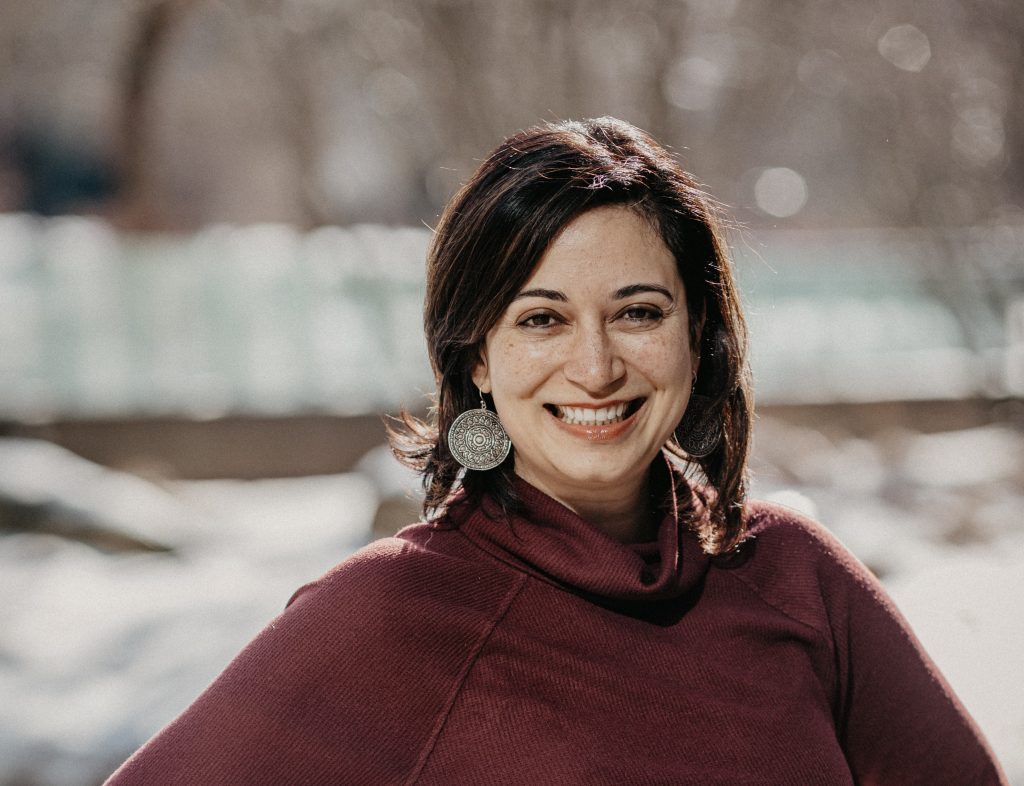New faculty profile: Mallika Nocco studies agricultural water management

Mallika Nocco joined the Department of Biological Systems Engineering as an assistant professor and extension specialist in January 2024.
What is your hometown? Where did you grow up?
I grew up in Woodbury, MN, which is a suburb of St. Paul.
What is your educational/professional background, including your previous position?
My path has been circuitous, but no regrets. I did my undergrad at the University of Minnesota-Twin Cities and double majored in cultural studies/comparative literature and philosophy. Following my undergrad, I worked for five years as a pharmaceutical sales rep for Pfizer in Madison, WI. During that time, I got very interested in sustainable agriculture and decided to go back to school. I received my master’s in soil science and Ph.D. in environment and resources from UW–Madison. After that, I did a very cool David H. Smith Conservation Postdoctoral Fellowship at the University of Minnesota-Twin Cities. Then, I took an extension specialist position in soil-plant-water relations at the University of California, Davis prior to my position at UW–Madison.
How did you get into your field of research?
I study agricultural water management including irrigation, soil hydrology, and drainage/recharge and my lab is called The Conservation Irrigation Lab (irrigationlab.com). I got very interested in these issues during my Ph.D., which focused on the Central Sands region of Wisconsin. I realized that the water cycle is fascinating, powerful, and complicated – especially once you start to consider humans, soil and plants.
What are the main goals of your current research and outreach programs?
I work with students, scientists, growers, policymakers, and water organizations to develop agricultural management strategies that balance farm livelihoods, soil health and water conservation. As a statewide extension specialist, outreach is a significant component of my program, and I strive to deliver the best available science-based information to help agricultural communities make short- and long-term choices.
What was your first visit to campus like?
I came to Madison for the first time as an undergrad on Halloween weekend in the year 2000 to visit my closest friend from high school, who lived in Chadbourne Hall. It was electric! I remember loving the campus, lakes, plus the creativity and ingenuity of the community that I saw in all the intricate costumes on State Street that Halloween night.
What’s one thing you hope students who take a class with you will come away with?
Science is political – it is inherently connected to civics, humans and society. So, I hope that students can share the awe that I feel about soil-plant-water cycling but also feel empowered to make sociopolitical choices about agriculture, water and the environment into the future.
Do you share your expertise and experiences with the public through social media? If so, which channels do you use?
I share information via LinkedIn, my lab website, and the Water Talk Podcast (watertalkpodcast.com or wherever you get your podcasts).
Do you feel your work relates in any way to the Wisconsin Idea? If so, please describe how.
Yes! I use a mix of both conventional extension approaches (workshops, fact sheets) and newer approaches (podcasts, video, social media) to reach a broad audience in Wisconsin and beyond. I also try to consider serving different kinds of people interested in agriculture and water across the state.
The pandemic forced us all to reconsider many things we took for granted. Is there something you’ve learned that has helped you through these challenging times, personally or professionally?
The pandemic is the reason that we started the Water Talk Podcast – I had to rethink how to do extension and reach people during a time when I couldn’t meet them in person. Also, I was in California when the pandemic started and it made me realize what it meant to be far from my home in the Midwest – I love and still work in California water and agriculture, but I realized that I wanted to be back in Wisconsin working with landscapes and communities that I feel very connected to and vested in.
What’s something interesting about your area of expertise you can share that will make us sound smarter at parties?
I study evapotranspiration or plant water use. Fun fact is that when you water a plant, ~90% of the water you use moves out through pores on the leaves called stomata.
What are your hobbies and other interests?
I enjoy gardening, cooking, preserving, dancing, and reading fiction. I also just passed my intro sommelier certification and am studying for the next level.

